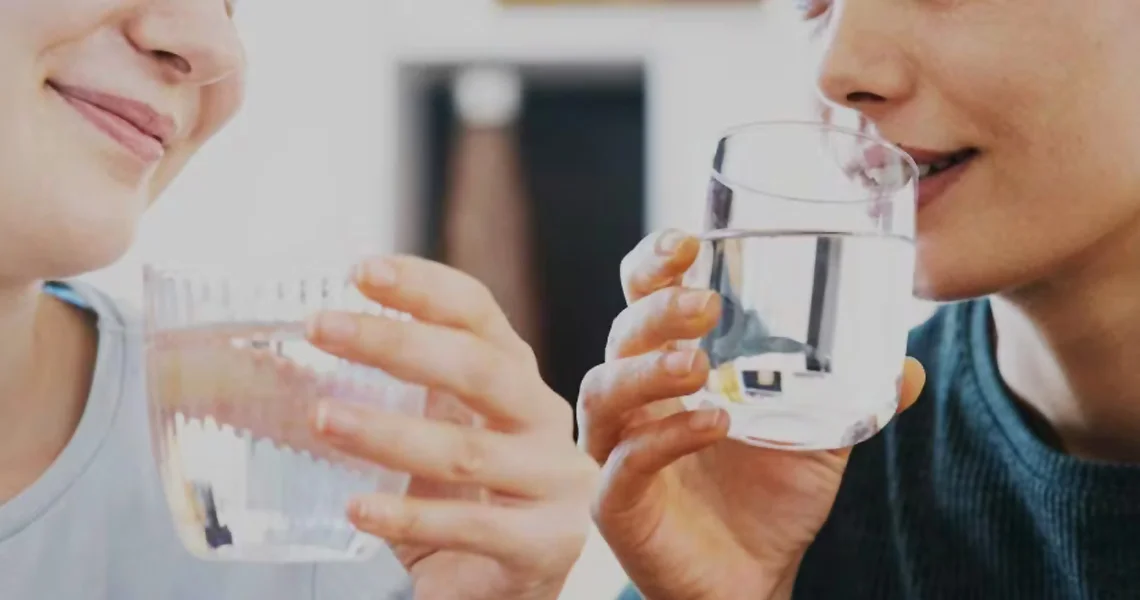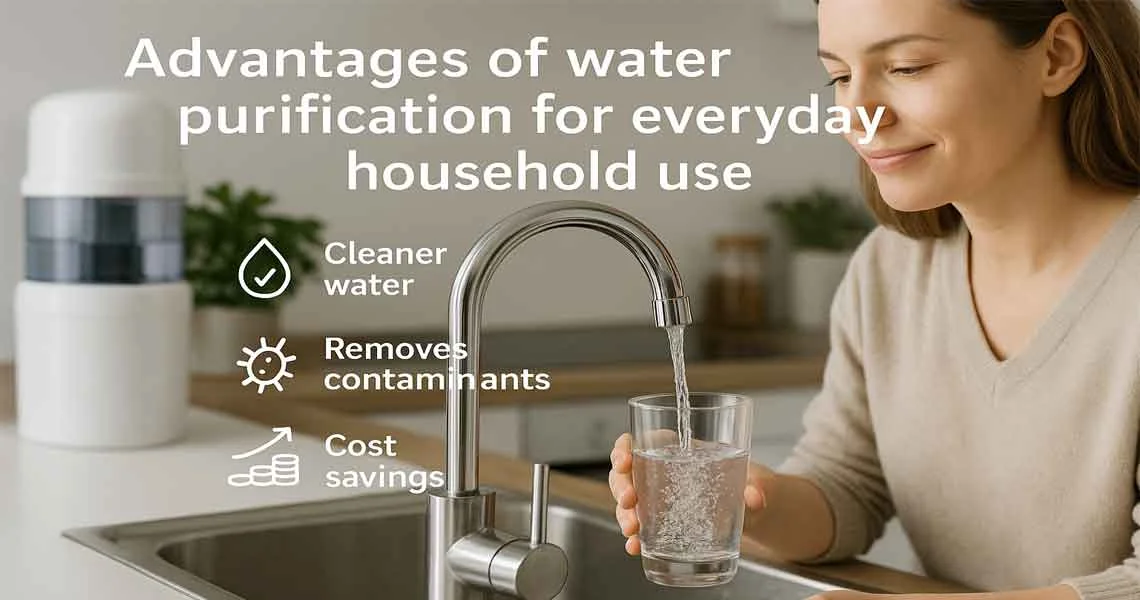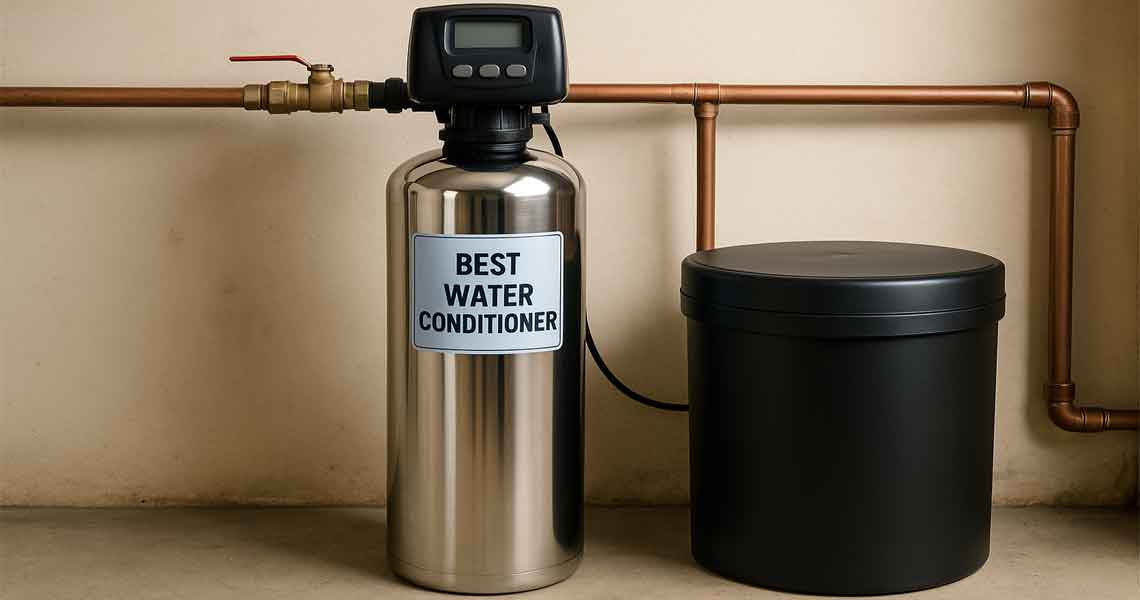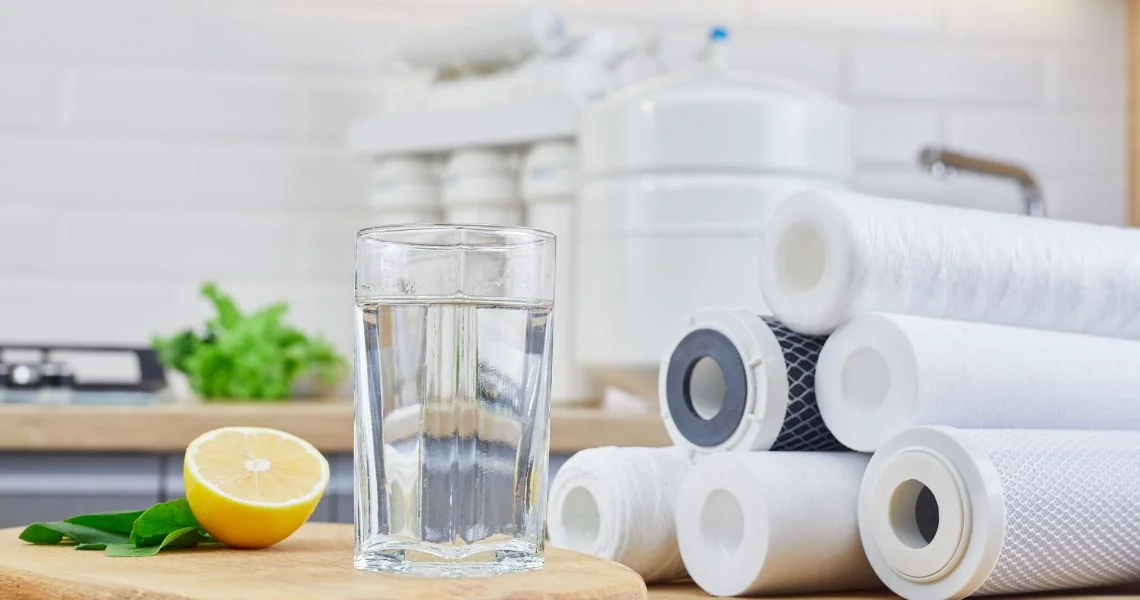Why is Water Purification Important?
Local water utilities do their best to deliver clean water, but sometimes residual chemicals are found even at deficient levels. These contaminants can include:
- Chlorine: Applied for the sanitation process but makes the food and drinks produce a rough taste and smell.
- Chlorine byproducts: These can be formed during water chlorination and may be hazardous to human health.
- Heavy metals: Lead, arsenic, and others are either evaporated in pipe water or inherent in their source.
- Bacteria: Filtration removes most of the bacteria, but some may remain, and this could be the case in private wells.
- Microplastics: Microplastics become common in water sources every day.
Benefits of Purified Water
A water purification system has numerous advantages relating to your health, the quality of your taste buds, and the effects of your water usage on the more incredible world. Let’s delve into the transformative power of purified water:
Enhanced Health
Consuming purified water can preferably enhance your health in the following ways:
- Reducing the risk of waterborne illnesses: Purified water excludes bad bacteria and parasites to protect you against diseases such as cholera, dysentery, and E. coli.
- Minimising exposure to heavy metals: Most water purification systems work by eradicating certain substances in water, such as lead and arsenic, which are bad for your health in the long run.
- Promoting better hydration: High quality, clean, flavorless purified water ensures one drinks more water, hence promoting good health in the body.
Superior Taste and Odor
Taste and odour, a common issue with Municipal tap water, are usually caused by chlorine or other minerals in the water. Water purification systems effectively remove these impurities, resulting in water that is:
- Crisp and refreshing: Pure water also has no aftertaste, which appeals to the natural taste.
- More appealing to drink: Better taste can help you and your family increase your water intake and, hence, stay well hydrated.
- Ideal for cooking and beverages: Purified water enhances the quality of coffee, tea, and foods that are prepared for consumption.
Environmental Responsibility
Using plastic water bottles is a clear slippery slope towards environmental degradation. By installing a water purification system, you can:
- Reduce plastic waste: Eliminate the use of water bottles to minimise plastic consumption, thereby reducing plastic waste.
- Sustainable choice: A reusable water bottle with purified water for a refill is a better solution.
- Conserve resources: Bottled water is quite expensive since it requires a lot of resources to produce. Although water purification systems are effective in removing contaminants from water supplies, they are more sustainable.
Experience the Wellness Difference: Holistic Water Purification for Your Home or Business
How Water is Purified
Water purification technology is mainly in the category of water treatment, and there are a lot of purification technologies out there. Here’s a glimpse into some of the most common methods:
- Reverse Osmosis (RO): Semi-permeable membrane technology uses a membrane through which only water molecules and very few pollutants, such as dissolved solids and minerals, can pass.
- Distillation: Water is heated, turned into steam, and then later converted into water by condensing, leaving impurities in the boiling chamber.
- Carbon Filtration: Activated carbon filters chlorine and tastes and odour and contains these impurities in its holes.
- Ultraviolet (UV) Light: This process exposes the water to UV light, killing most bacteria and viruses without using chemicals.
Choosing the Right Water Purification System for Your Needs
Since there are many water purification systems, choosing the right one is a task that should not be taken lightly. Consider these factors:
- Water source: Tap water within municipalities and private wells will have different concerns regarding the contaminants.
- Desired level of purification: Some technologies remove specific contaminants to a greater extent than others.
- Budget: The costs also depend on the system’s implementation type and the functions to be included.
- Maintenance requirements: Certain systems tend to need the replacement of filters more often than others.
It is always advisable to consult with a water treatment expert regarding the best water softening method suitable for your water type and usage needs.
Investing in a Healthier You and a Greener Planet
A water purification system is a worthy investment concerning your health and the ability to enjoy the taste of water and the Earth. By providing clean and safe drinking water, these systems offer a plethora of benefits:
- Safeguard your health: Minimise the incidence of water-borne diseases and other related illnesses resulting from consumption of contaminated water.
- Enjoy the taste: Taste the purity of clean water and its extraordinary quality.
- Reduce plastic waste: Find ways to make small changes in your lifestyle that can significantly impact the environment.
Conclusion
Water purification systems have significant benefits not only within homes or individual families. By promoting better health and reducing reliance on bottled water, these systems contribute to a more substantial positive impact:
- Reduced healthcare costs: Reduced cases of waterborne diseases imply that the health sector could incur reduced costs. Community well-being: Easy access to safe drinking water can improve the general health of the community.
- Conservation efforts: Filtering systems play an important role in reducing plastic waste, cleaning the seas, and helping to make the Earth a healthier place.
An investment in a water purification system is an easy and effective way to improve one’s health and well-being and the state of the environment. It is a wave of change from a drop of clean water that you consume to the positive impact it has on your family, your neighbours, and the environment. Therefore, grab the chance right now and allow yourself to be changed by the benefits of purified water!





